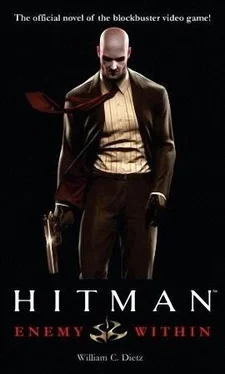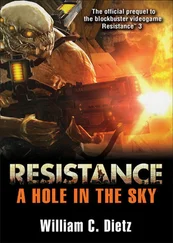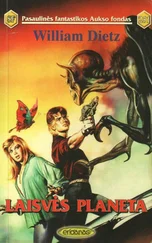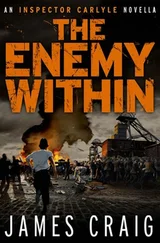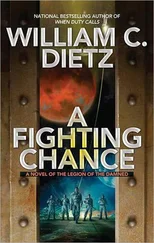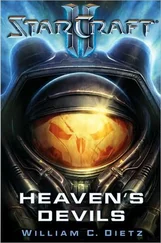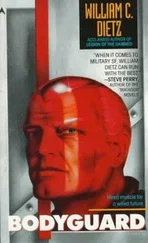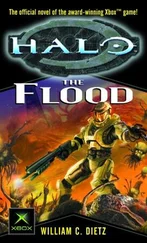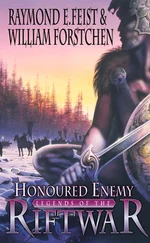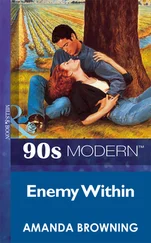The Silverballer was on its way back to the shoulder holster hidden beneath a safari-style vest even as the thief went down. Gazeau had seen his share of violence in North Africa, yet he was clearly impressed by the speed and accuracy demonstrated by his newly acquired client, and allowed his eyebrows to rise.
“You travel armed.”
The assassin nodded. “So do you.”
The Libyan laughed. “Yes, and it’s a good thing too! Come…we have work to do.”
It took the better part of an hour to dump the bodies into a gully and cover them with soil. The beat-up Toyota Land Cruiser would be impossible to hide, however, so Gazeau did the next best thing: he left the key in the ignition.
“It will be gone by tomorrow morning,” the Libyan predicted. “And I can assure you that the new owner won’t file any reports with the local police!”
Confident that he was less than a day behind Al-Fulani, Agent 47 instructed Gazeau to drive him to Mongo, the next logical destination for Al-Fulani and his party. The trip required another six-hour journey, then an overnight stay in a convenient wadi, and a two-hour drive the following morning. But finally they were there.
Gazeau downshifted, and the diesel belched black smoke as the Mog eased its way down Mongo’s main street. It was cool in the cab, thanks to the air conditioning, but Mongo shimmered in the midmorning heat.
Agent 47 noticed that there were two styles of architecture in town. Some of the locals favored flattopped structures made from concrete blocks, while others preferred buildings with peaked roofs that were sheathed in rusty metal. None, with the exception of a single white mosque, exceeded two stories in height.
However, disparate as the two styles were, there was a common tendency toward garish paint, piles of festering trash, and brand-spanking-new Coke signs that not only served to advertise the product, but plugged otherwise gaping holes in the buildings.
The much abused structures stood shoulder to shoulder, like drunks who rely on each other in order to remain upright, and bled rivulets of brown wastewater into the unpaved street. The effluvium stank to high heaven, and merged into sluggishly flowing streams that followed the gentle gradient down toward the other end of town.
None of which seemed to bother the men of Mongo, most of whom appeared to be unemployed and stood in doorways, sat on stoops, or perched on the hoods of half-stripped vehicles. They watched the Mog pass with the same alert intelligence possessed by scavengers everywhere, as they listened for early signs of mechanical distress, and calculated what such a handsome vehicle would fetch on the black market.
In the meantime their women, busy in the way third-world women are always busy, struggled to cope with hordes of quarreling children, tons of filthy clothes, and an endless succession of meals. Some were Arabic, commonly referred to as “northerners,” and wore conservative clothing. Others-those dressed in more colorful attire, and commonly referred to as “southerners”—were generally non—Islamic.
But regardless of their origins, all were locked in a battle with poverty, ignorance, and disease and went about their chores with downcast eyes, as if fully aware of the forces that opposed them, having already conceded defeat.
Gazeau glanced at the man seated next to him.
“It’s depressing, isn’t it?”
The operative shrugged.
“I’ve seen worse.” Again the Libyan’s eyebrows rose.
“There’s the police station,” Gazeau said, and he pointed through the dirt-smeared windscreen.
Agent 47 looked. The police station was a squat-looking affair, set apart from the other buildings, and surrounded by a nine-foot-tall cyclone fence topped by coils of razor wire. Three desert-equipped 80-series Land Cruisers sat by the gate. Two appeared to be operable, and the third was up on concrete blocks. Judging from the scattering of mismatched tools that lay about, not to mention the scrawny legs that protruded from under the vehicle, it appeared that one of the local mechanics was hard at work trying to repair it.
Of more interest was the police model Eurocopter EC 135 that sat on a pad within the enclosure. The aircraft was so new, so valuable, that it rated its own sentry.
Gazeau braked, pulled into the parking area, and killed the Mog’s engine.
“You’re sure this is a good idea,” 47 said doubtfully.
“No,” Gazeau answered cheerfully, “I’m not. But real geologists would stop and pay for a permit to take samples out of the country. And if Al-Fulani passed through here, the police will know about it. The problem, if we run into one, will relate to the size of the bribe. If the fee is reasonable, which many are, we pay and go. But, if the Sous-Prefet is greedy, we’ll make some sort of excuse, and take our chances with the locals. Unfortunately, whatever information they give us may be a pack of lies.”
“Okay,” the assassin agreed. “You’re the expert. Let’s do it.”
Gazeau nodded, ordered Numo to guard the truck, and opened the driver-side door. Heat flooded in, along with the choking smell of sewage and bright sunlight. The Libyan jumped to the ground, slammed the door, and hooked a pair of aviator-style sunglasses over his ears. Then, with the shades in place, Gazeau led 47 up to the gate.
The sentry, who looked as if he had only recently graduated from the police academy, was proud of his new khaki uniform and the huge revolver strapped to his hip. He spoke serviceable French.
“Good morning, how can I help you?”
Agent 47 listened absently as Gazeau answered in the same language, wondered why the front of the pale blue police station was pocked with what looked like bullet holes, then followed the Libyan inside.
The interior was only a few degrees cooler, but it still felt good to step out of the sun, even if the ancient ceiling fan was turning too slowly to do much good. There were benches on either side of the room, both filled with pitiful-looking supplicants, many of whom had brought food with them, as if expecting a long wait.
The counter, which was manned by a flat-eyed corporal, was made of plywood. The front had been decorated with a carefully rendered likeness of the blue, yellow, and red national flag. A Michelin map covered most of the desk’s surface and was protected by a sheet of scratched glass. The Libyan leaned his arms on it and inquired as to the availability of export permits for the worthless rocks that occupied the back of the Mog. The corporal countered by demanding to see a valid Autorisation de Circuler, which Gazeau pushed across the counter.
Then, having examined the document for what seemed like an extraordinary length of time, the policeman issued what might have been a grunt of approval, whispered something to a grubby little boy, and sent him scurrying away.
“You will wait,” the corporal said, gesturing to the already packed benches. “The Sous-Prefet will be available shortly.”
“Shortly” turned out to last for the better part of an hour as the corporal worked his way through a large stack of forms, hitting each one with a decisive thump from his poorly inked stamp. In the meantime, the fan turned in meaningless circles, the flies searched for new territory to conquer, and the locals waited to learn what fate had in store for them. Finally, just as 47 was about to suggest that they pull out, the grubby little boy scampered up to the corporal, whispered in his ear, and eyed the foreigners as he did so.
The corporal nodded gravely, cleared his throat pretentiously, and relayed the message.
“The Sous-Prefet will see you now.”
Omar Al-Sharr was an intelligent, if not very energetic, man. That was why he had chosen a career in the public sector, rather than try to eke out a living by running his own small business. Even so, having applied to the police, Al-Sharr had used what savings he had to grease the correct palms, and was accepted onto the force.
Читать дальше
